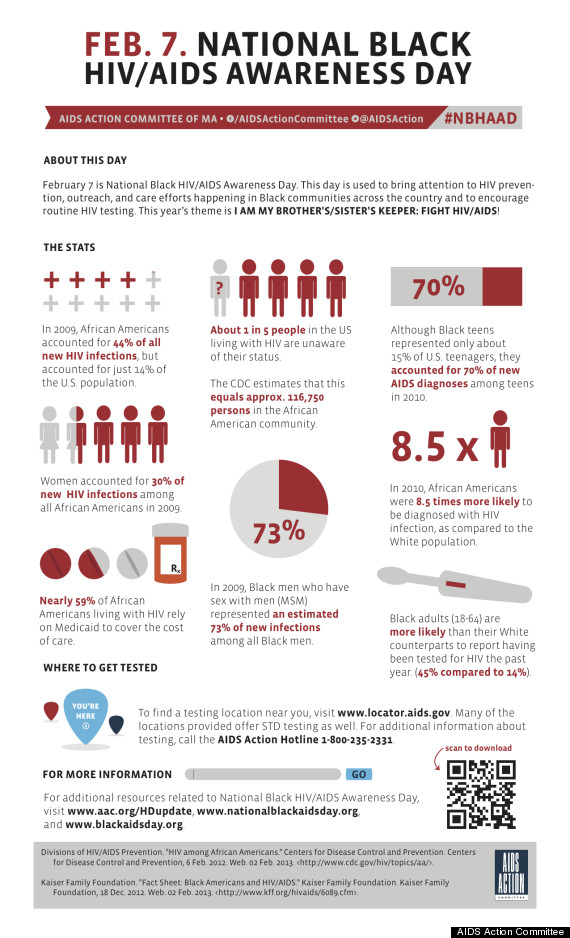It's only been two months since the first ever at-home HIV testing kit hit pharmacy shelves. And while it was designed with the stigma around HIV and AIDS in mind, health officials acknowledge that it's a feat that will take much longer to dispel.
In honor of National Black HIV/AIDS Awareness Day (NBHAAD) Thursday, health advocates across the U.S. took to the web and to HIV testing centers to spread the word that with black America continuing to bear the greatest burden of HIV in the nation (African Americans represent 14 percent of the U.S. population, but account for almost half of all new HIV infections and almost half of the 1.1 million Americans living with HIV) much more work needs to be done.
Here's a closer look at NBHAAD and where HIV rates in the black community stand.

According to the Center for American Progress Action Fund, healthcare policies are another reason why HIV and AIDS disparities persist:
GOP lawmakers have been slashing funding for HIV testing and treatment under Medicaid. Although the U.S. Preventative Task Force recommended that all community health clinics — which serve poorer regions — conduct free HIV testing, many centers haven’t had enough resources to follow through. And the issue has been exacerbated by Republican governors who have refused to implement Obamacare’s Medicaid expansion. Expanding Medicaid would extend insurance coverage to millions of low-income Americans, including more access to HIV testing and treatments. Instead, some GOP leaders are making aggressive cuts to their state-level Medicaid programs — like Louisiana Gov. Bobby Jindal (R), who recently slashed a case management program for low-income HIV patients.
But despite challenges, the future of HIV treatment remains bright.
Newly diagnosed HIV-positive individuals who start medical treatment can live long and healthy lives, the CDC says. Early treatment also dramatically reduces a person’s risk of passing the virus on.
Since last year's National Black HIV/AIDS Awareness Day, the FDA helped spur on groundbreaking advancements in the development of antiretroviral drugs, while the CDC launched an innovative $43 million, 3-year initiative aimed at reducing health disparities in communities of color by addressing the social, economic, clinical and structural barriers to prevention and care.
Yet still, officials like Jonathan Mermin, M.D., director of the CDC's division of HIV/AIDS Prevention National Center for HIV/AIDS, says black Americans must do even more.
"Within our communities, we must create safe spaces in our homes, schools and places of worship to talk openly and honestly about HIV."
Tell us how you've commemorated National Black HIV/AIDS Awareness Day in the comments section below.
